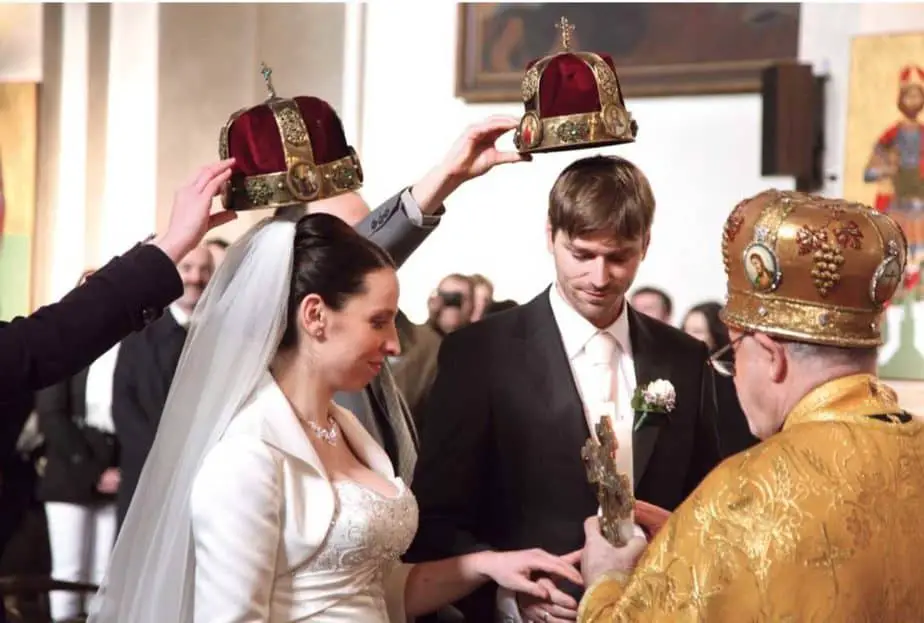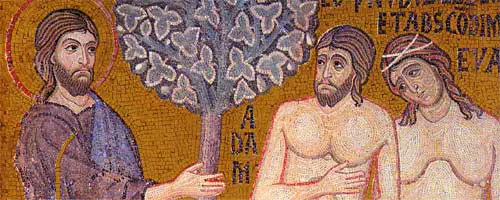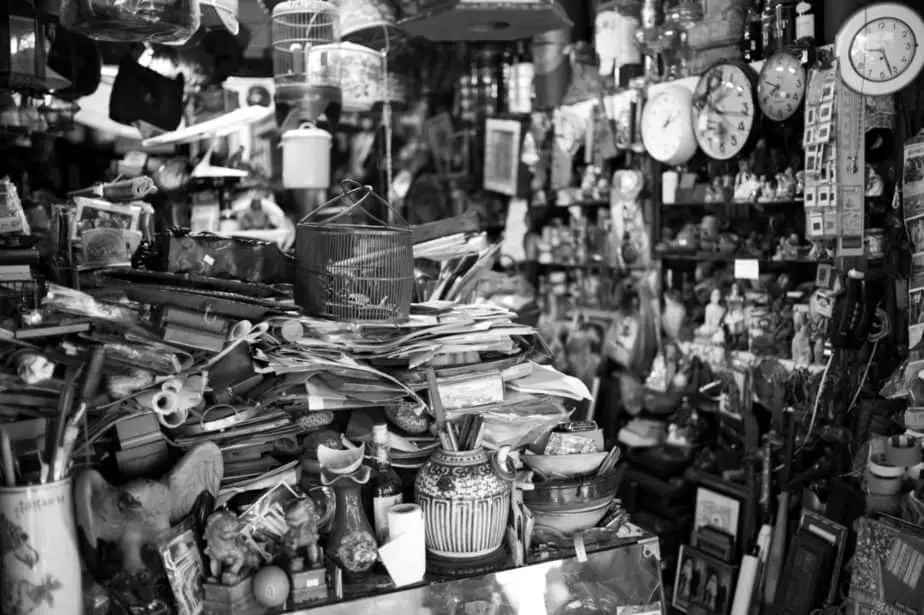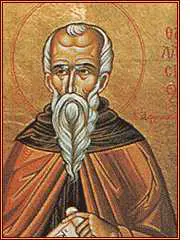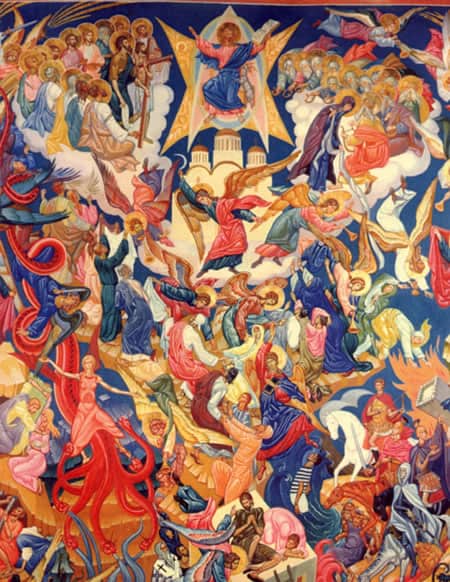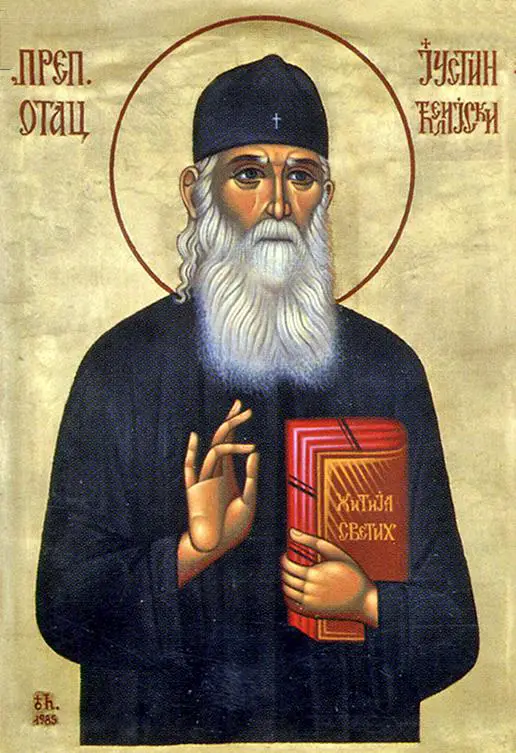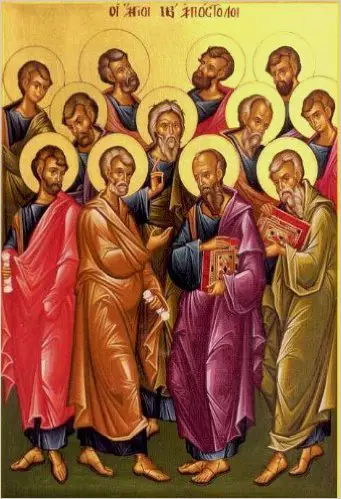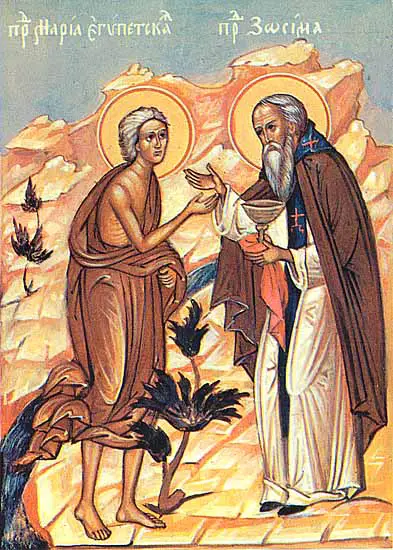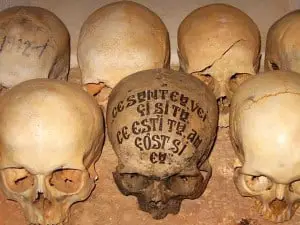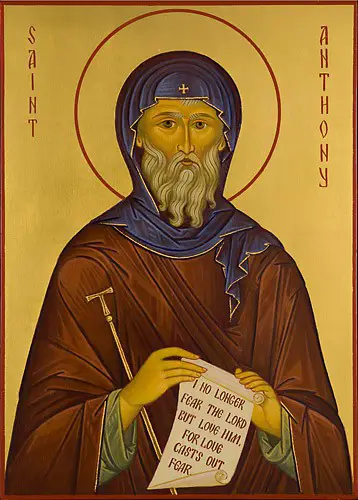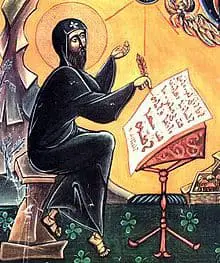I think upon that day and hour when we shall all stand naked, like men condemned, before the Judge who accepts no man’s person. Then shall the trumpet sound aloud and the foundations of the earth shall quake, the dead shall rise from the tombs and all shall be gathered together from every generation. Then each man’s secrets will be manifest before thee: and those that have never repented shall weep and lament, departing to the outer fire; but with gladness and rejoicing the company of the righteous shall enter into the heavenly bridal chamber.
How shall it be in that hour and fearful day, when the Judge shall sit on his dread throne! The books shall be opened and men’s actions shall be examined, and the secrets of darkness shall be made public. Angels shall hasten to and fro, gathering all the nations. Come ye and hearken, kings and princes, slaves and free, sinners and righteous, rich and poor: for the Judge comes to pass sentence on the whole inhabited earth. And who shall bear to stand before his face in the presence of the angels, as they call us to account for our actions and our thoughts, whether by night or by day? How shall it be then in that hour! But before the end is here, make haste, my soul, and cry: O God who only art compassionate, turn me back and save me.
Daniel the prophet, a man greatly beloved, when he saw the power of God, cried out: “The court sat for judgment, and the books were opened.” Consider well, my soul: dost thou fast? Then despise not thy neighbor. Dost thou abstain from food? Condemn not thy brother, lest thou be sent away into the fire, there to burn as wax. But may Christ lead thee without stumbling into his kingdom.
Let us cleanse ourselves, brethren, with the queen of the virtues: for behold, she is come, bringing us a wealth of blessings. She quells the uprising of the passions, and reconciled sinners to the Master. Therefore let us welcome her with gladness, and cry aloud to Christ our God: O risen from the dead, who alone art free from sin, guard us uncondemned as we give thee glory.
— Four Stichera at the Praises, Matins, Meatfare Sunday, Lenten Triodion, pp. 164-165


